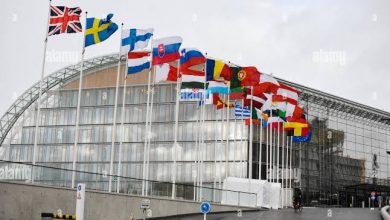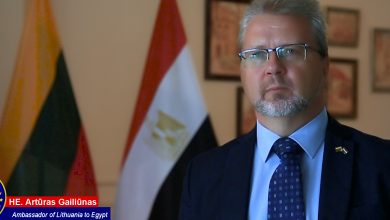Empowering Egypt: The European Investment Bank’s Commitment to Growth
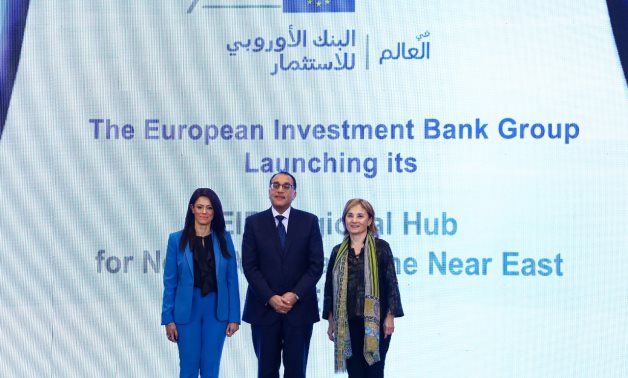
The European Investment Bank (EIB) is a cornerstone institution in the European Union’s financial and developmental architecture. Established in 1958 under the Treaty of Rome, the EIB has grown into one of the world’s largest multilateral financial institutions, playing a crucial role in fostering economic development, innovation, and sustainability across Europe and beyond. This article delves into the EIB’s mission, its areas of focus, and its impact on global development.
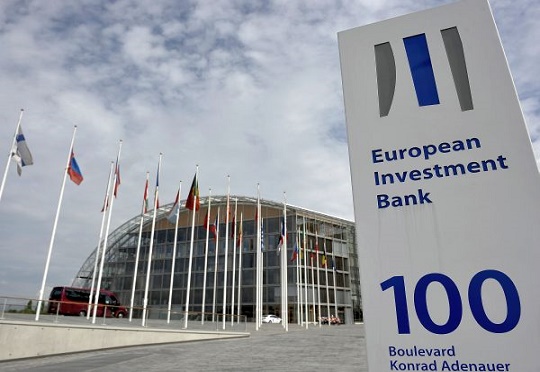
Mission and Mandate
The EIB’s primary mission is to support the EU’s policy objectives by providing finance and expertise for sustainable investment projects. The bank operates with a clear mandate to enhance the economic, social, and environmental conditions within the EU and in neighboring regions. It achieves this through a variety of financial products, including loans, equity investments, and guarantees, tailored to meet the needs of public and private sector projects.
Key Areas of Focus
- Sustainable Development and Climate ActionThe EIB is at the forefront of the EU’s efforts to combat climate change. It has committed to aligning its activities with the Paris Agreement and aims to support €1 trillion in climate action and environmental sustainability investments by 2030. The bank finances projects that promote renewable energy, energy efficiency, sustainable transport, and climate resilience.
- Innovation and SkillsRecognizing the critical role of innovation in driving economic growth, the EIB invests heavily in research, development, and innovation (RDI). It supports projects that foster technological advancement, improve educational outcomes, and enhance workforce skills. By financing cutting-edge research and supporting startups, the EIB helps maintain Europe’s competitive edge in the global economy.
- Infrastructure and CohesionThe EIB plays a vital role in financing infrastructure projects that improve connectivity, such as transport networks, digital infrastructure, and urban development. These investments are crucial for enhancing economic cohesion across the EU, particularly in less developed regions, and for ensuring that all member states benefit from economic growth.
- SMEs and Mid-CapsSmall and medium-sized enterprises (SMEs) are the backbone of the European economy, and the EIB provides significant support to this sector. Through various financial instruments, including guarantees and direct lending, the bank helps SMEs access the capital they need to grow and create jobs.
Global Reach and Impact
While the EIB’s primary focus is on the EU, its influence extends globally. The bank finances projects in over 160 countries, supporting EU external policies and contributing to the United Nations’ Sustainable Development Goals (SDGs). Its international operations include investments in renewable energy projects in Africa, infrastructure development in Latin America, and support for SMEs in Asia.
Recent Initiatives and Achievements
In recent years, the EIB has launched several key initiatives to address emerging global challenges. Notably, it has increased its focus on digitalization, supporting projects that advance digital infrastructure and innovation. The bank has also played a pivotal role in the EU’s response to the COVID-19 pandemic, providing financial support to healthcare systems, SMEs, and economic recovery efforts.
One of the EIB’s landmark achievements is its leadership in green finance. The bank was the first in the world to issue green bonds, and it continues to set standards in sustainable finance. By financing projects that reduce greenhouse gas emissions and promote environmental sustainability, the EIB is helping to drive the transition to a low-carbon economy.
Challenges and Future Directions
Despite its successes, the EIB faces several challenges. These include navigating complex geopolitical environments, ensuring the sustainability and impact of its investments, and addressing the diverse needs of its stakeholders. The bank must also continue to innovate its financial products and services to meet the evolving demands of the global economy.
Looking ahead, the EIB’s strategic direction includes a stronger emphasis on climate action, digital transformation, and social inclusion. The bank is committed to enhancing its impact measurement and reporting, ensuring that its investments deliver tangible benefits for communities and the environment.
The Role of the European Investment Bank in Egypt: Driving Development and Partnership
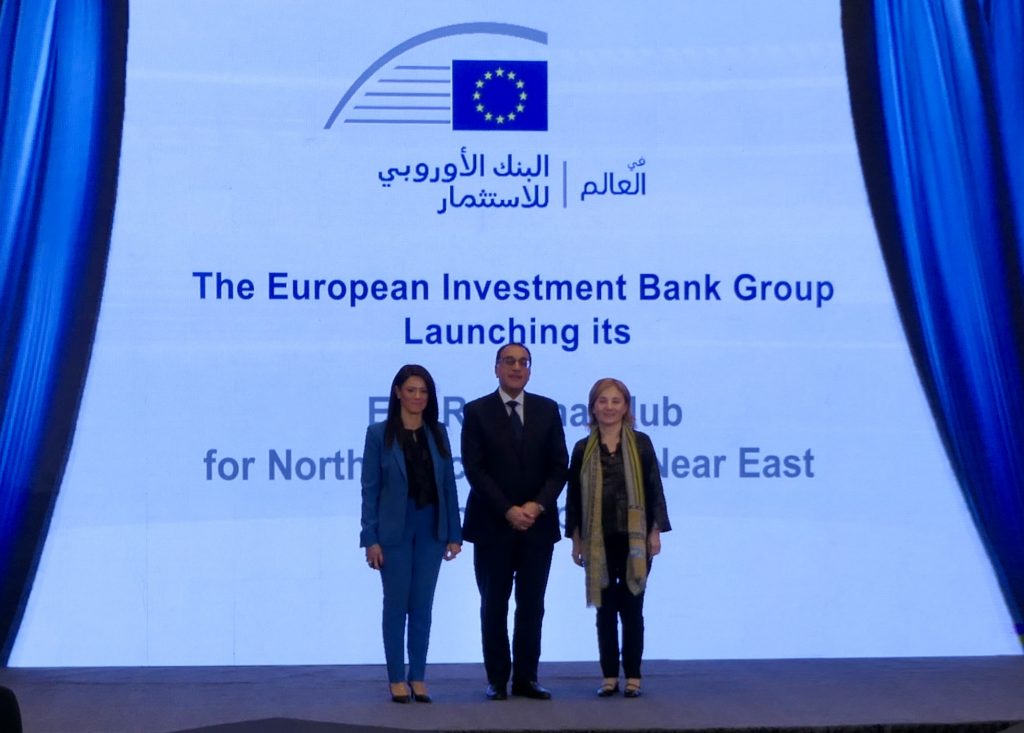
The European Investment Bank (EIB) plays a pivotal role in fostering economic development and sustainable growth in Egypt. Through strategic investments and partnerships, the EIB supports a wide range of projects that align with both Egypt’s national development priorities and the European Union’s external policy objectives. This article explores the EIB’s involvement in Egypt, highlighting its key areas of focus, major projects, and the overall impact on the country’s economic landscape.
Strategic Importance of Egypt for the EIB
Egypt holds a strategic position at the crossroads of Africa, the Middle East, and Europe. Its stability and economic prosperity are vital not only for the region but also for the broader Mediterranean area and the European Union. The EIB’s engagement in Egypt is driven by a mutual interest in promoting sustainable development, enhancing economic stability, and fostering regional cooperation.
Key Areas of Focus
- Infrastructure DevelopmentOne of the primary focuses of the EIB in Egypt is the development of critical infrastructure. This includes investments in transport, energy, and urban development projects that enhance connectivity and support economic growth. The EIB has financed projects such as the expansion of Cairo’s metro system, which aims to reduce traffic congestion and pollution while improving public transportation efficiency.
- Renewable Energy and Climate ActionThe EIB is committed to supporting Egypt’s transition to a low-carbon economy. The bank finances renewable energy projects, such as solar and wind power plants, which contribute to reducing greenhouse gas emissions and enhancing energy security. A notable example is the EIB’s support for the Benban Solar Park, one of the largest solar installations in the world, which significantly boosts Egypt’s renewable energy capacity.
- Water and SanitationAddressing water scarcity and improving sanitation infrastructure are critical for Egypt’s sustainable development. The EIB has invested in projects that enhance water supply and wastewater treatment facilities. These projects not only improve public health and living conditions but also support agricultural productivity and industrial development.
- Support for SMEs and Private Sector DevelopmentSmall and medium-sized enterprises (SMEs) are vital for job creation and economic diversification in Egypt. The EIB provides financing and technical assistance to SMEs, helping them access the capital needed to grow and innovate. This support includes loans and guarantees that enable local banks to extend more credit to SMEs, fostering entrepreneurship and economic resilience.
- Human Capital and Social DevelopmentThe EIB recognizes the importance of investing in human capital to drive long-term economic growth. It supports projects in education, vocational training, and healthcare, which enhance the skills and well-being of the Egyptian population. These investments help create a more inclusive and productive workforce, contributing to social stability and economic development.
Major Projects and Achievements
- Cairo Metro Line 3 ExtensionThe EIB has provided substantial financing for the extension of Cairo Metro Line 3. This project aims to improve urban mobility, reduce traffic congestion, and lower carbon emissions by offering a reliable and efficient public transportation option. The extended metro line will connect key areas of Cairo, facilitating easier and faster travel for millions of residents.
- Benban Solar ParkAs part of its commitment to renewable energy, the EIB has co-financed the Benban Solar Park in Aswan. This massive solar power complex is expected to generate up to 1.8 GW of electricity, making a significant contribution to Egypt’s renewable energy targets. The project not only supports environmental sustainability but also creates jobs and stimulates economic growth in the region.
- Fayoum Wastewater ExpansionThe EIB has invested in expanding wastewater treatment facilities in the Fayoum Governorate. This project improves access to sanitation services for over 800,000 residents, enhancing public health and environmental conditions. It also supports agricultural activities by providing treated wastewater for irrigation, contributing to food security and rural development.
Impact and Future Directions
The EIB’s investments in Egypt have had a profound impact on the country’s economic and social development. By financing critical infrastructure projects, promoting renewable energy, and supporting SMEs, the EIB helps create a more resilient and diversified economy. These efforts align with Egypt’s Vision 2030, which outlines the country’s long-term development strategy focused on sustainable growth and improved living standards.
Looking ahead, the EIB plans to deepen its engagement in Egypt by exploring new areas of cooperation, such as digitalization and innovation. The bank aims to support projects that leverage technology to enhance public services, boost productivity, and create new economic opportunities. Additionally, the EIB will continue to prioritize climate action and environmental sustainability, aligning its investments with global efforts to combat climate change.
Conclusion
The European Investment Bank plays a crucial role in Egypt’s development journey, driving projects that enhance infrastructure, promote renewable energy, support SMEs, and improve social services. Through strategic investments and partnerships, the EIB helps Egypt achieve its development goals while fostering regional stability and cooperation. As both Egypt and the EU navigate the challenges of the 21st century, the EIB’s role as a catalyst for sustainable development and innovation will remain indispensable.


